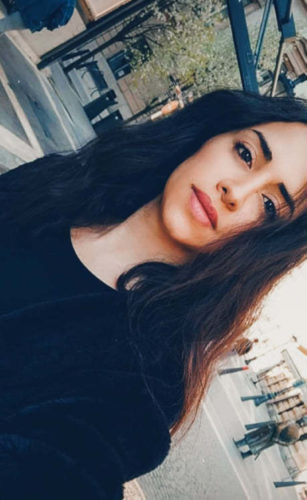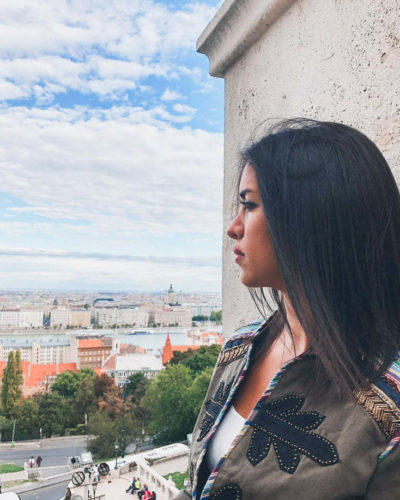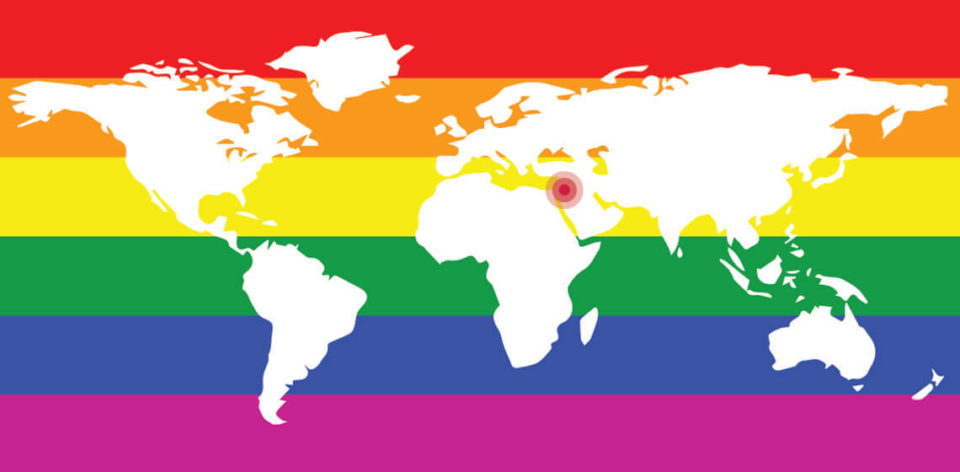Anxiously waiting to be able to see the world again, this month we are travelling outside of our comfort zone, Europe, in order to explore the Middle East. We are happy to welcome Lina from Jordan.
Can you introduce yourself please?
My name is Lina Haddadin (31), I am from Amman, Jordan, now living in Budapest, Hungary. I am an artist, architect, and landscape architect. My hobbies include reading, painting, drawing, listening to music, travelling, sports, watching series and so many other things. Back in my birth country, I first lived in a small city and then at the age of 15 I moved to Amman, the capital of Jordan. I was teaching at a university there for almost 4 years. I came to Budapest to do my masters and to start a new life.
I come from a conservative society, born and raised in an orthodox Christian family, which largely influences how much you can be open in such communities. There are actually some people who came out to their families, some families could accept this and some not. It all depends on how strict they are in terms of their religious beliefs. Not all of my friends know about my sexuality but a lot of them do. What matters to me now is being honest with myself and I am actually becoming more open about my sexuality. I have an amazing and adorable girlfriend and I'm blessed to have her in my life.

We are happy to have you here. Now tell us a bit about Jordan.
In Jordan we are controlled by religion, it's not a liberal country. Islamic Sharia law prohibits same-sex sexual conduct and relationships, but no fines or other penalties can be enforced under criminal law. Same-sex marriages, or more limited civil unions, are not legally recognized in Jordan and it is not possible for same-sex couples to get married or adopt children.
That being said, Jordan’s stance on LGBTQ+ issues is considered one of the more advanced in the Middle East, as criminalization of same-sex relations was removed from country's the Penal Code in 1951. Recent reports suggest that although a large number of LGBTQ+ citizens are in the closet and often have to lead double lives, a new wave of younger LGBTQ+ people are beginning to come out of the closet and are becoming more visible in the country, working to establish a vibrant LGBTQ+ community of filmmakers, journalists, writers, artists and other young professionals. Only a few young Jordanians of the upper class are able to remain single (that is, not in heterosexual marriage). Most of these more “open” Jordanians are well educated and from prosperous middle class or wealthy families.The Jordanian government also tolerates a few cafes in Amman that are widely considered to be gay friendly.

How’s social life in Jordan for the LGBTQ+?
As I said, most of the LGBTQ+ people in Jordan are in the closet and often have to lead double lives. In workplaces people tend to be more private regarding their sexuality in general. They don't share anything about their relationships or their dating life. Also, displaying public affection is not allowed in Jordan, whether on the streets, in schools, or workplaces, as it “disrupts public morality” (but this goes for heterosexual couples as well).
The acceptance of LGBTQ+ people is low, because there is a general perception that being LGBTQ+ is un-Islamic, therefore unacceptable in an Islamic country. Despite the ban on honor crimes, the concept of honor remains strong, with LGBTQ+ people being seen as a strain on a family’s honor. Nevertheless, significant efforts have been made to raise awareness of LGBTQ+ issues, especially in the last few years. As a consequence, the Jordanian LGBTQ+ community has experienced a slight increase in visibility and acceptance, particularly among younger and wealthier Jordanians. To give you an example, My.Kali is an online pan-Arab LGBTQ+ magazine, published in Amman, Jordan in English since 2007 and in Arabic since 2016. It is named after its publisher, openly gay Jordanian model and activist Khalid "Kali" Abdel-Hadi. This magazine was the first LGBTQ+ inclusive online publication in Jordan and one of the first in the Middle East. The magazine was established in late 2007 by a group of students with various interests, ranging from design and arts to politics. The online magazine sought to address homophobia and transphobia and to empower Arab youth to defy gender-binary institutions and traditions.

Finally, can you share a funny, memorable, or inspirational coming out story of yours?
The first time I came out to someone close to me was when, after studying together in the same university for years, my best friend was to leave and do her master’s abroad. It was one of those days when I didn’t think much and all of a sudden I just called her and told her without thinking about what to say. And I must say, her reaction was priceless. She was very accepting and she told me that she loves me no matter what. I felt so relieved and it was like a burden coming off of my chest. It was a great feeling, and since then I have started to tell some other close friends as well. I was so afraid of being judged and not accepted, but I realized later: what’s the point of having great friendships without great acceptance? And if you lose some people who wouldn’t accept you, you have at least won yourself. The ones who really love you will accept everything about you even if you’re different from them.

